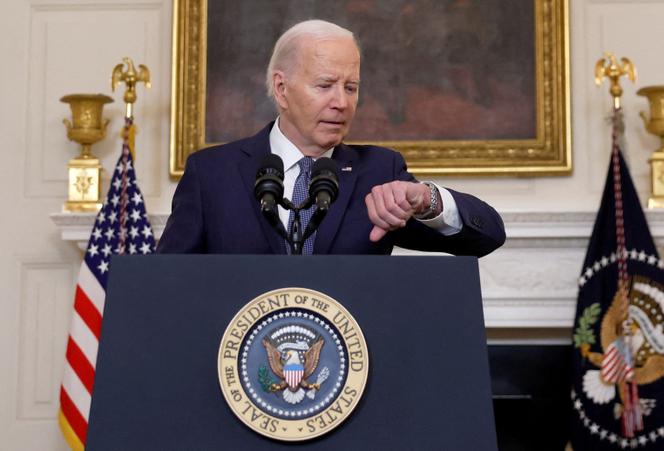


On Friday, May 31, Benjamin Netanyahu was forced to confirm the ceasefire proposal for Gaza unveiled by US President Joe Biden. How could he possibly oppose it on its core tenets? It was an Israeli proposal. Netanyahu pointed out that he himself authorized his negotiators to put it on the table. However, he directly contradicted the interpretation of it expressed by his great ally.
According to Biden, the text outlines a process whose explicit aim is to end the war, as Hamas has demanded. However, Netanyahu has refused to put the conflict to rest. On the contrary, he claimed that this deal would allow Israel "to continue the war until all its objectives are achieved, including the destruction of Hamas's military and governing capabilities. The actual proposal put forward by Israel, including the conditional transition from one phase to the next, allows Israel to uphold these principles," his office said in a statement.
For weeks now, the prime minister has been "isolated" within his own government, several sources close to Israeli negotiators recently told Le Monde, on the condition of anonymity. Forced by his own ministers to accept terms that he has subsequently been quick to alter, or even contradict, Netanyahu is causing "despair" among the Israeli negotiators. They consider him to be "monopolized by his own political survival." They suspect him of "sabotaging" their efforts, to prolong the war and keep himself in power, all while allowing his far-right allies to dream of the ethnic cleansing and recolonization of Gaza.
"The only divergence between Israel and Hamas is whether an acknowledgment of the end of the war should be expressed, or whether it should simply take place without being said," explained one of these sources. However, as the source added, the government is aware that an agreement would involve "ceasing all military operations, possibly withdrawing troops from Gaza; the release of a number of terrorists from Israeli prisons; and, at the very least, implicitly accepting the fact that Hamas is not completely excluded from the governance of Gaza, but that it will exert influence over the entity that will control the enclave in a transitional phase, and perhaps beyond."
Explicitly acknowledging that Hamas has survived eight months of war remains unthinkable for Israel's politicians. Public opinion would never forgive them for acknowledging the limits of their country's power, while the staggering collapse of Israel's deterrent capacity on October 7, 2023, remains as yet unaddressed. This is why Biden addressed the Israelis directly, assuring them that "Hamas no longer is capable of carrying out another October 7," contradicting the main argument of the Israeli right.
You have 52.85% of this article left to read. The rest is for subscribers only.
